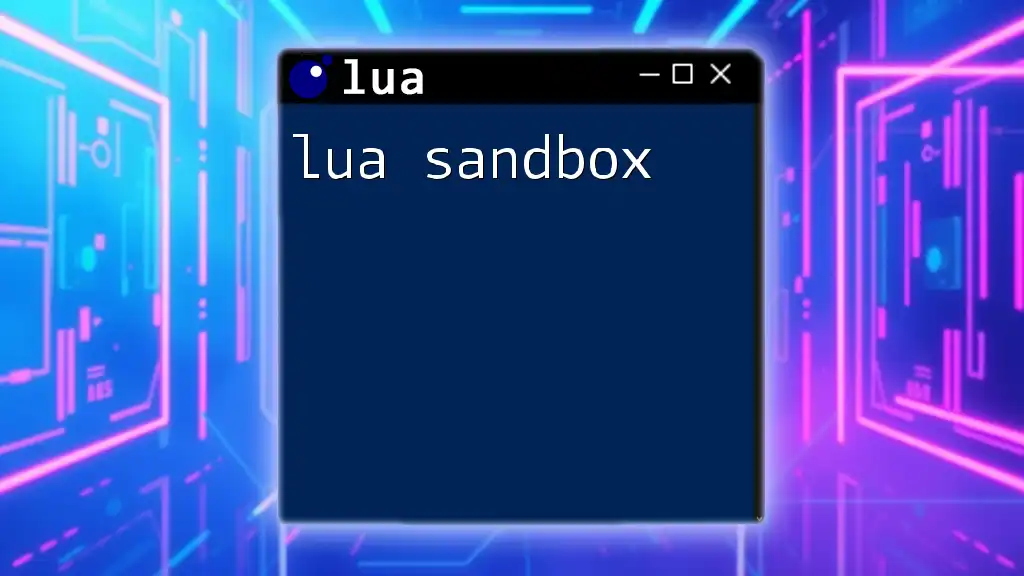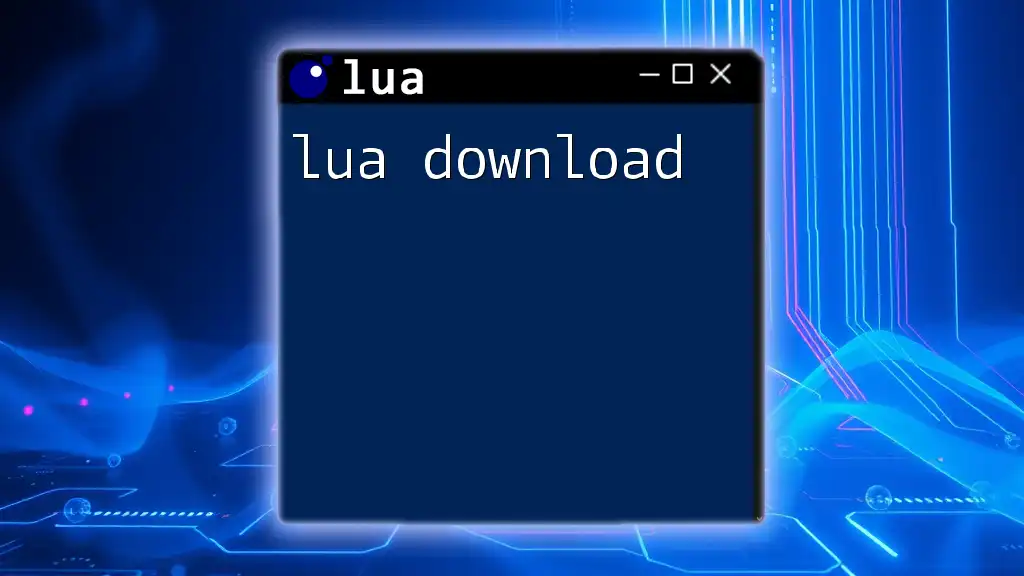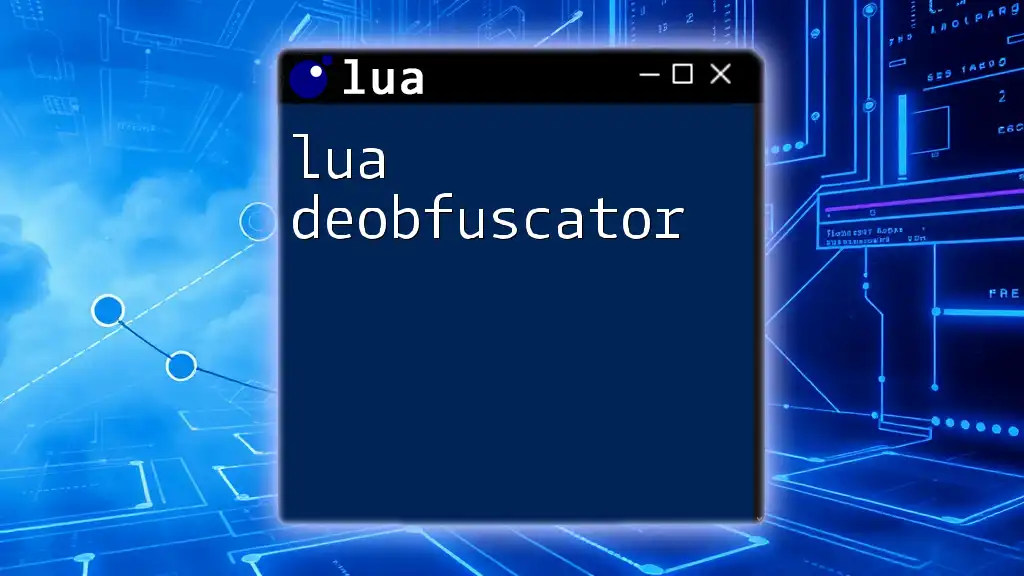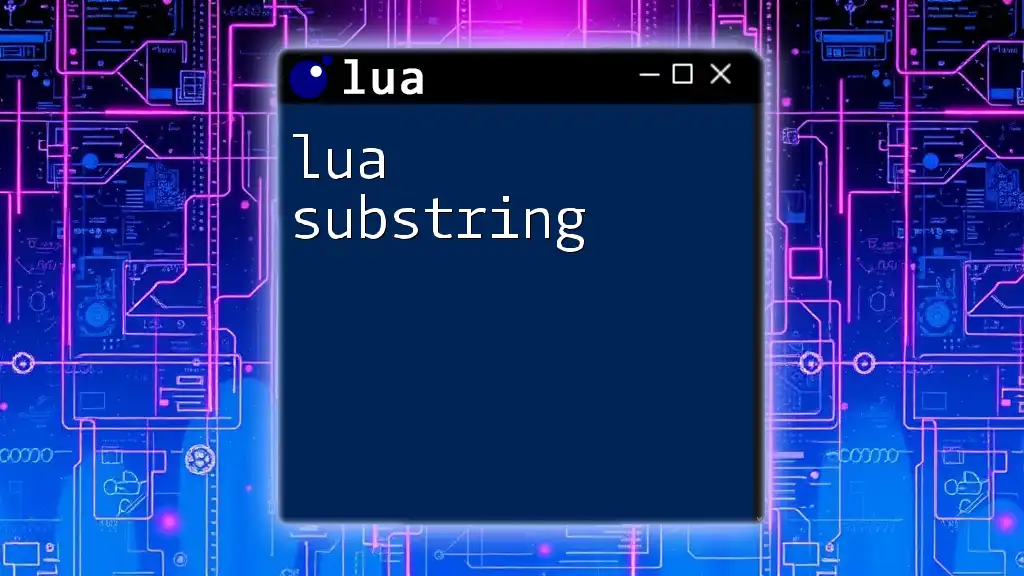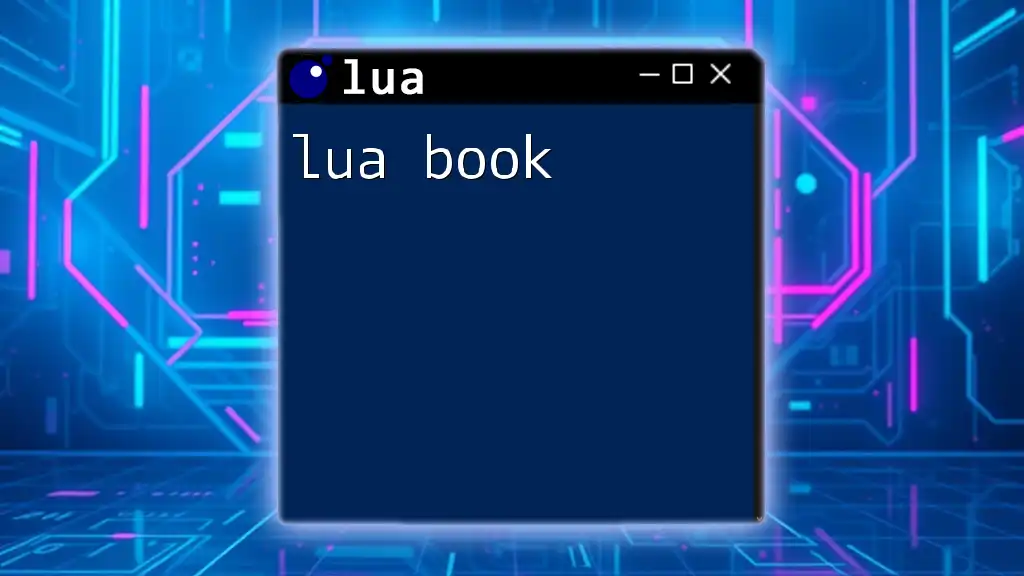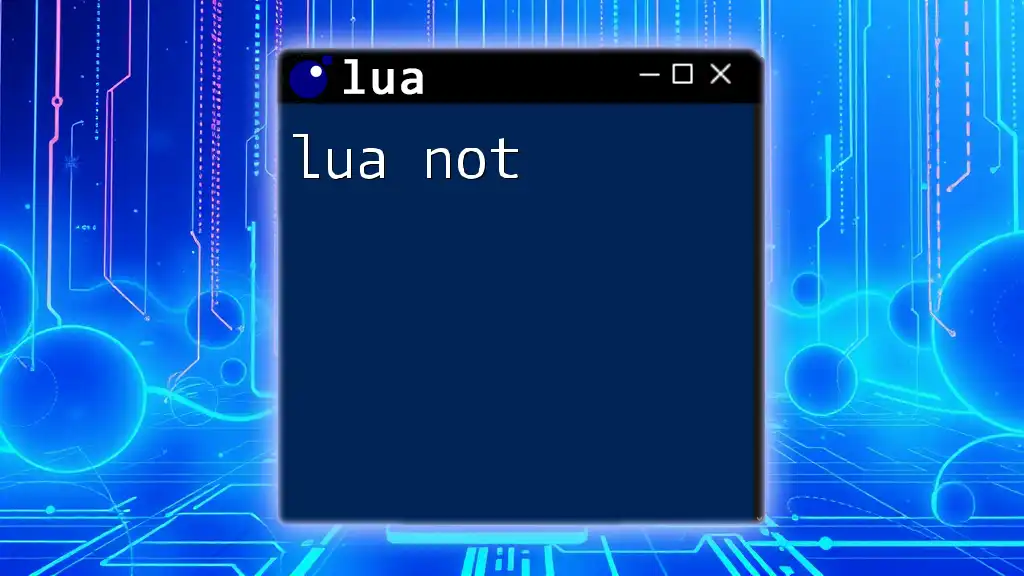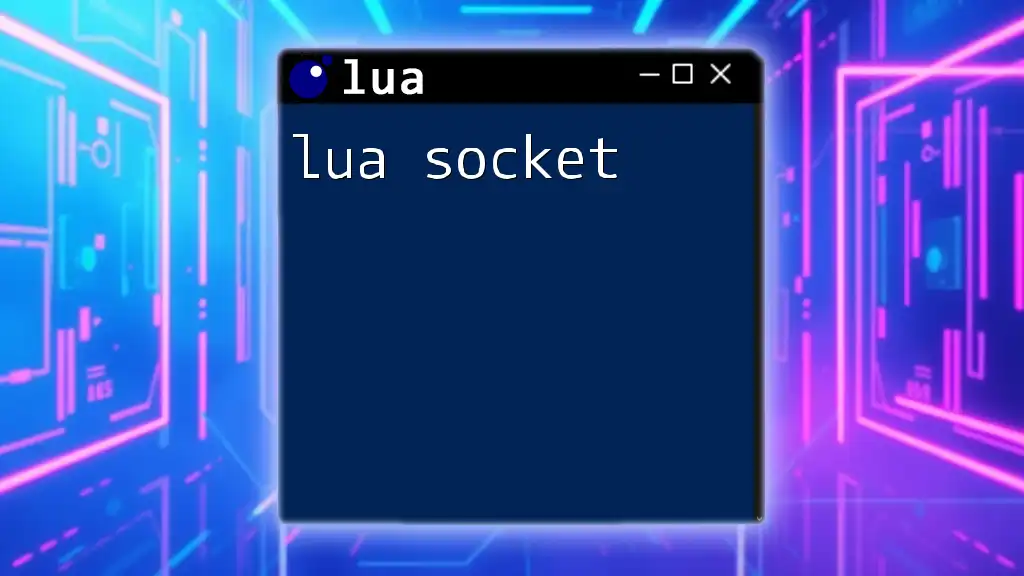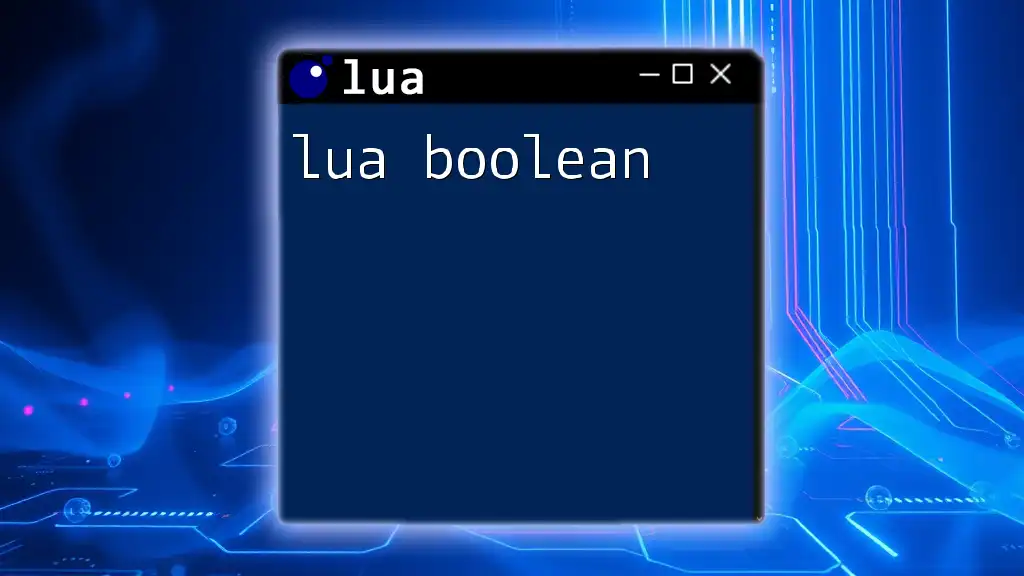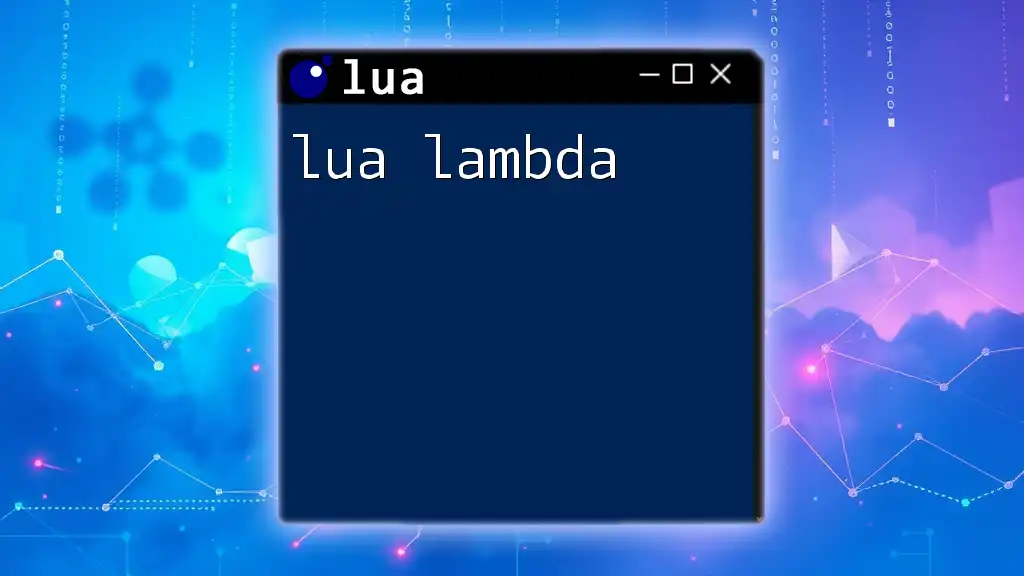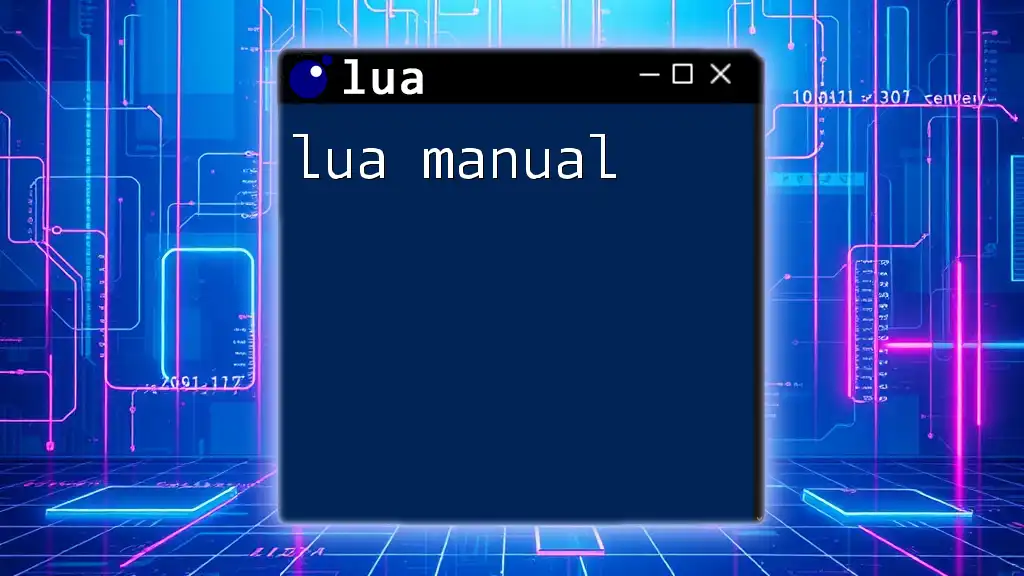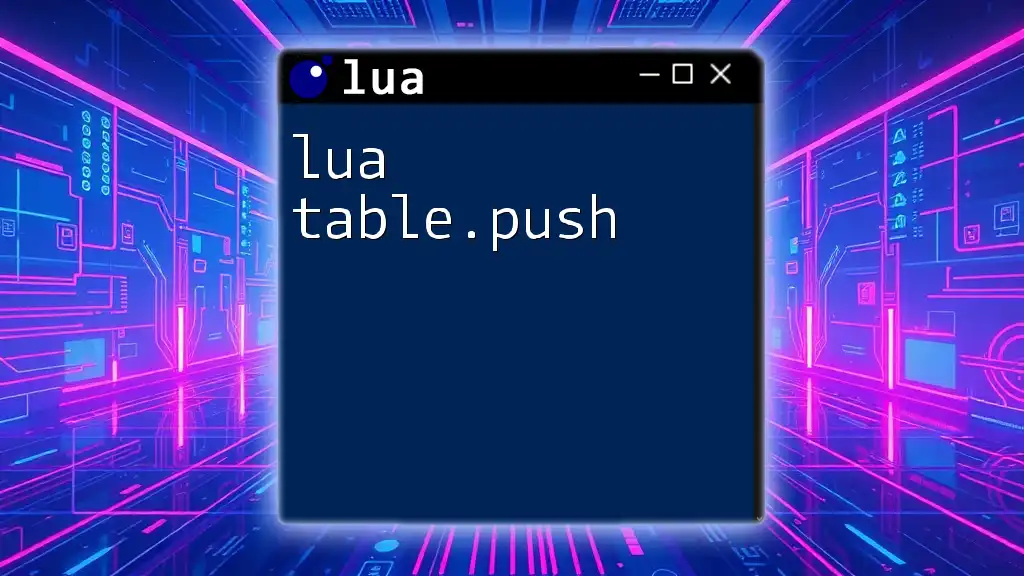A Lua sandbox is a controlled environment that restricts the execution of scripts to ensure security and prevent unauthorized access to the system's resources.
Here’s a simple code snippet demonstrating how to create a basic sandbox in Lua:
local sandbox = {
print = print, -- allow only print function
math = { max = math.max }, -- allow only math.max
}
-- Function to execute code within the sandbox
function sandbox.execute(code)
local f, err = load(code, "sandbox", "t", sandbox)
if not f then
return nil, err -- return error if code failed to load
end
return f()
end
-- Example usage of the sandbox
local result, err = sandbox.execute("return math.max(10, 20)")
if result then
print("Output:", result)
else
print("Error:", err)
end
Understanding the Lua Sandbox
Definition and Purpose
A Lua sandbox is a controlled execution environment designed specifically for running Lua scripts in a safe and isolated manner. This concept arises from the broader idea of sandboxing in computing, which restricts the capabilities of the code and systems it interacts with, thereby preventing potential security issues or unintended side effects.
The primary purpose of a Lua sandbox is to provide an environment where users can experiment and execute Lua scripts without affecting the host system's state or security. It allows users, particularly learners and developers, to write and test code safely.
Key Features of a Lua Sandbox
Isolation
One of the most crucial aspects of a Lua sandbox is its ability to isolate code execution. By creating an environment that limits access to certain resources, a sandbox ensures that scripts cannot access or alter the system's state or sensitive data inadvertently. This is particularly vital when running untrusted code or code written by third parties, as it safeguards the host system from potential threats.
Controlled Environment
A controlled environment means that the sandbox restricts the functionalities available to the code being executed. For example, you could grant a Lua script access to specific libraries while denying access to system execution functions or file handling, which might create vulnerabilities.
This controlled setup is especially useful in educational contexts where learners can experiment and test their understanding of Lua without risking their systems or accessing unnecessary resources.
State Management
State management in a Lua sandbox involves maintaining the execution state of scripts across multiple invocations without interfering with the global environment. A well-implemented sandbox allows scripts to run successfully while ensuring that their effects are contained within the sandbox.
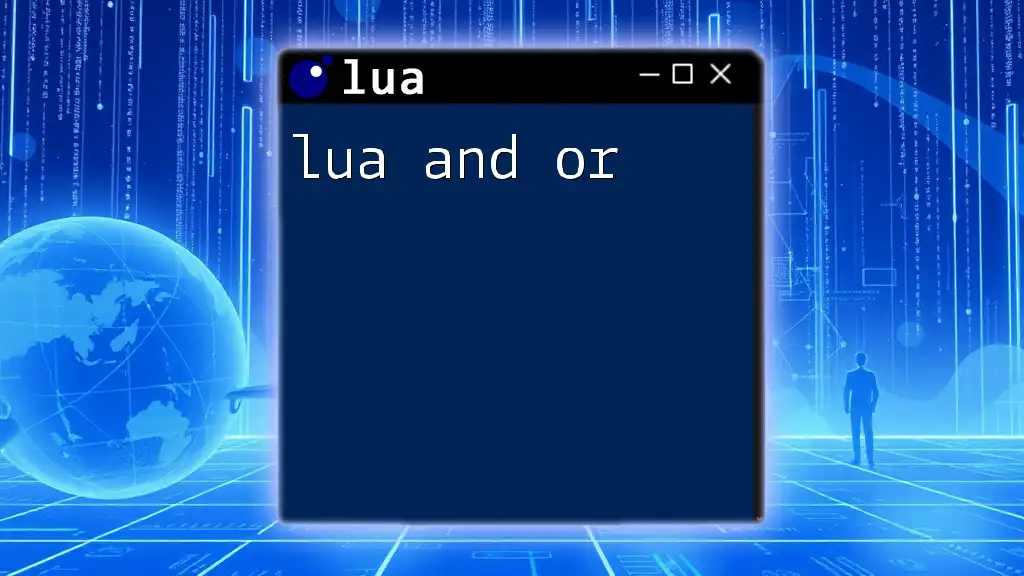
Setting Up a Lua Sandbox
Required Tools and Environment
To get started with a Lua sandbox, you will first need the necessary tools:
- Lua Interpreter: Download it from the official Lua website or use package managers suitable for your operating system.
- Integrated Development Environment (IDE): Using an IDE can enhance the development experience. Some popular options include ZeroBrane Studio, IntelliJ IDEA, or Visual Studio Code.
Getting Started with Lua
To install Lua, you can follow the instructions for your specific operating system. For instance, on Unix-based systems, you can use:
sudo apt-get install lua5.3
On Windows, you can download the installer directly from the Lua website.
Setting Up Your First Sandbox
Using Lua’s Built-in Functionality
Lua provides built-in functions like `load` and `loadstring` to help you create a simple sandbox. Here’s an example of how to execute Lua scripts within a sandbox:
local sandbox = function(code)
local f, err = load(code)
if not f then
return "Error: " .. err
end
return f()
end
local result = sandbox("return 1 + 2")
print(result) -- Output: 3
This code defines a simple sandbox function that loads and executes a Lua code string, returning any error messages.
Creating a Custom Lua Sandbox
To create a more robust sandbox, you might want to build a custom environment. Here’s a step-by-step guide with a code example:
local function createSandbox()
local sandboxEnv = {}
setmetatable(sandboxEnv, {
__index = _G, -- Give access to global functions
__newindex = function(_, key, value)
error("Attempt to modify a read-only environment")
end
})
return sandboxEnv
end
local env = createSandbox()
local code = "print('This is a safe sandbox!')"
load(code, "sandbox", nil, env)()
This script creates a sandbox environment that allows access to global functions while preventing any changes to its structure, thereby maintaining its integrity.
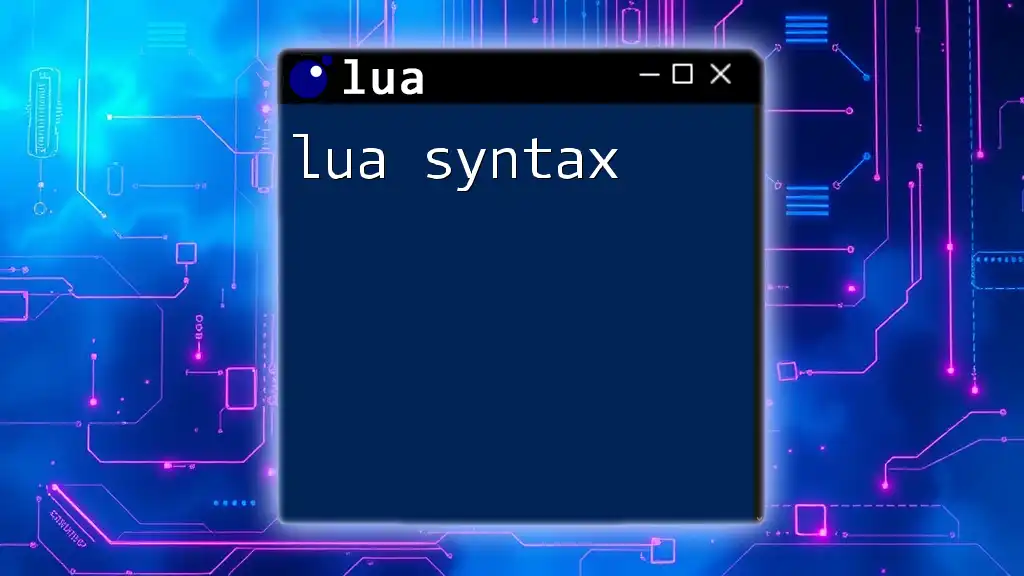
Practical Applications of Lua Sandboxes
Educational Purposes
Lua sandboxes serve an essential role in educational contexts. They allow learners to write and test Lua scripts in a secure environment, reinforcing their understanding of the language by enabling hands-on practice without the risk of damaging the underlying system.
Development and Testing
For developers, sandboxes facilitate rapid prototyping of code. They can quickly validate code functionality by executing snippets without setting up extensive environments or risking existing projects. Moreover, they are beneficial when testing Lua modules and functions, allowing for immediate feedback and iteration.
Security Use Cases
Sandboxing is vital when executing untrusted code. By running potentially harmful or third-party scripts in a sandboxed environment, you significantly reduce the risk of security issues. Furthermore, effective sandboxing prevents scripts from performing dangerous operations, such as modifying system files or accessing sensitive user data.
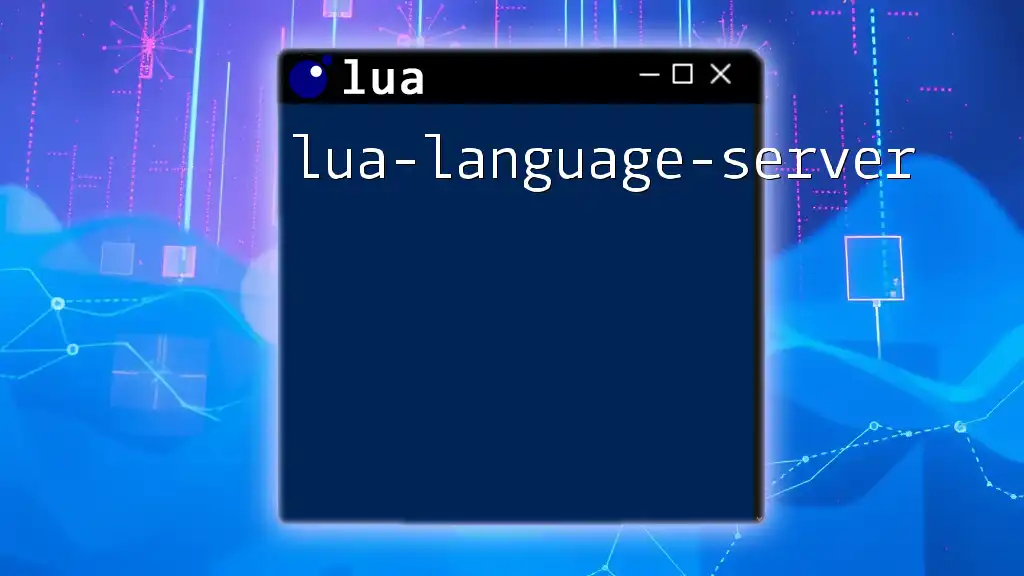
Example Projects Using a Lua Sandbox
Simple Calculator
One practical application of a Lua sandbox is developing a simple calculator. This project allows learners to see immediate results from their calculations in a controlled environment. Here’s how you can implement it:
local function calculator(code)
local sandbox = createSandbox()
return load(code, "calculator", nil, sandbox)()
end
local result = calculator("return 5 + 3")
print(result) -- Output: 8
This code exemplifies how to execute mathematical expressions safely within a sandbox.
Text-Based Game Prototype
Another interesting project is developing a simple text-based game prototype. Using Lua sandboxes can help test game logic and mechanics without affecting the game’s core structure. Here’s an example of setting up a basic game environment:
local gameCode = [[
local function startGame()
print("Welcome to the Game!")
return "Game started"
end
return startGame()
]]
print(calculator(gameCode)) -- Output: Game started
This script provides a foundation for experimenting with game functions while shielding the main application from potential errors.
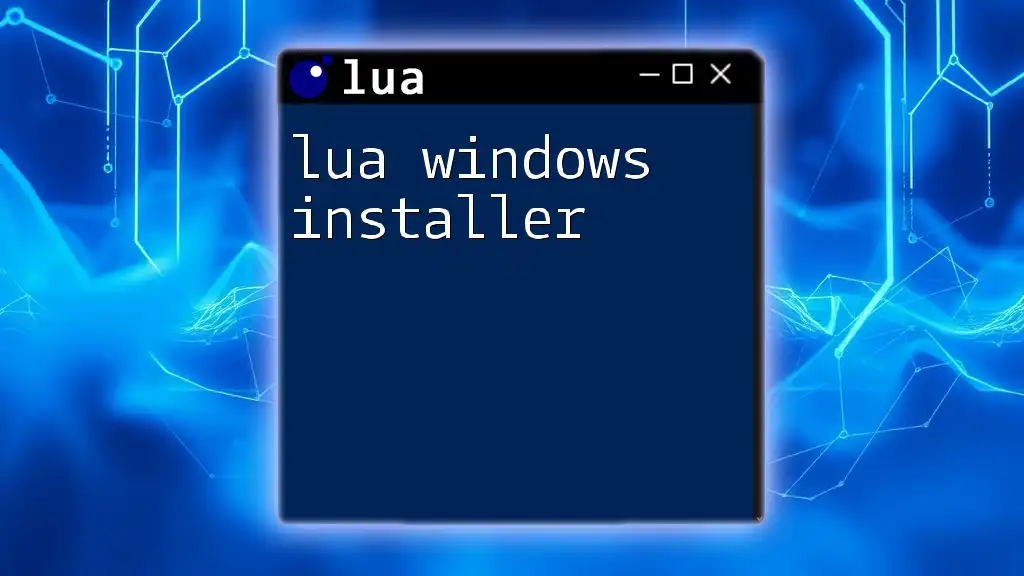
Best Practices for Using Lua Sandboxes
Maintaining Security
When utilizing Lua sandboxes, it’s crucial to avoid including dangerous functions in the sandboxed environment. For instance, avoid allowing access to functions that interact with the file system or those that execute system commands.
Performance Considerations
When designing a sandbox, consider strategies to optimize execution. Use lightweight libraries and minimize repetitive global lookups. These practices can significantly enhance performance while maintaining security.
Testing and Debugging
Testing and debugging sandboxed code require specific attention. Use print statements and logging within the sandbox to gather insights into code execution while keeping in mind the isolation aspect, which may hinder traditional debugging techniques.
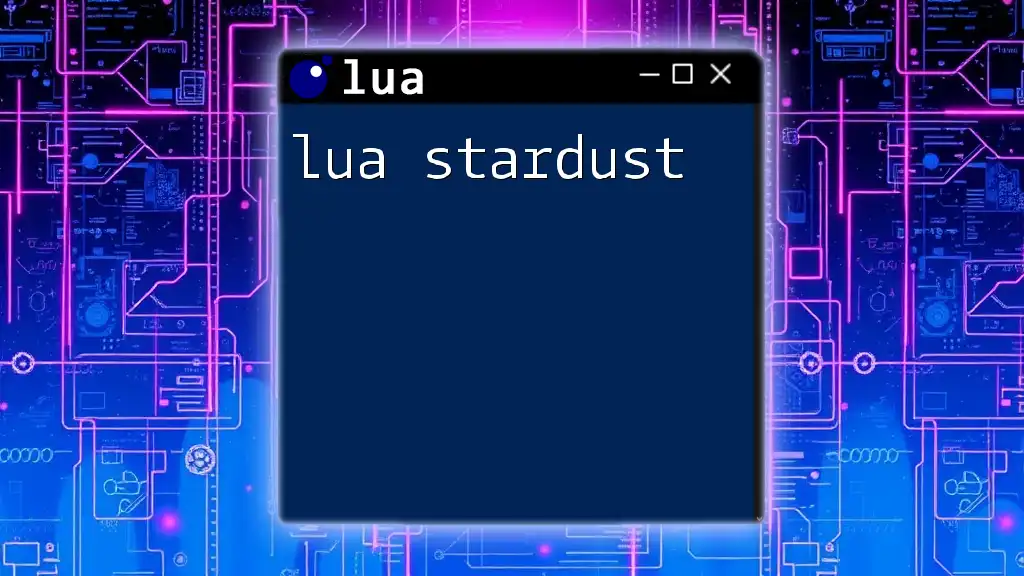
Conclusion
A Lua sandbox is an invaluable tool for developers and learners alike, providing a secure environment for experimentation and testing. By isolating code execution and preventing unwanted system changes, users can unlock the full potential of Lua scripting while maintaining system integrity. Remember to explore, experiment, and enjoy the learning journey in Lua!
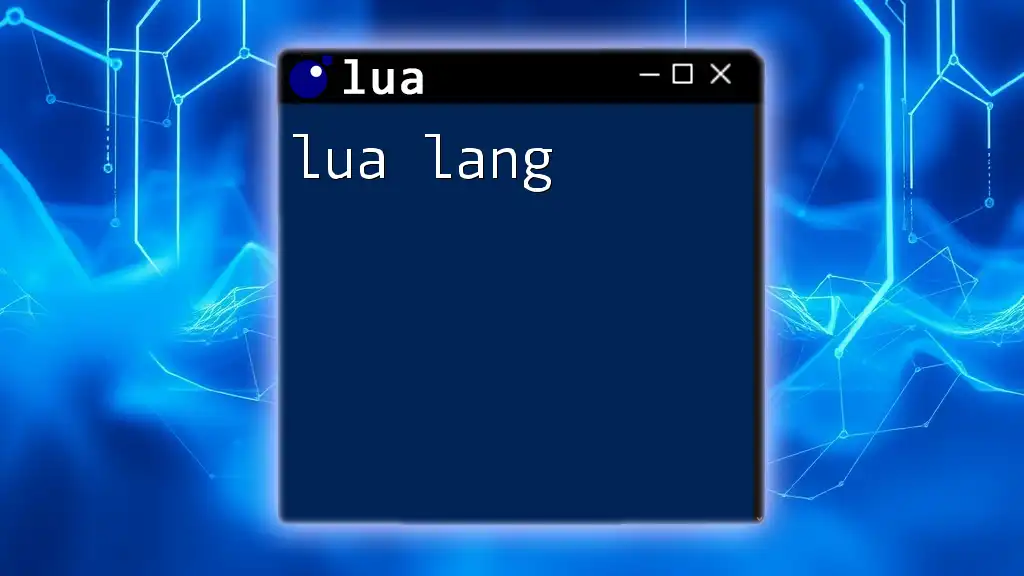
Further Resources
For those looking to dive deeper into Lua and its sandboxing capabilities, several resources are available. The official Lua documentation serves as an excellent starting point, while community forums and online courses can enhance your understanding and proficiency in Lua programming.
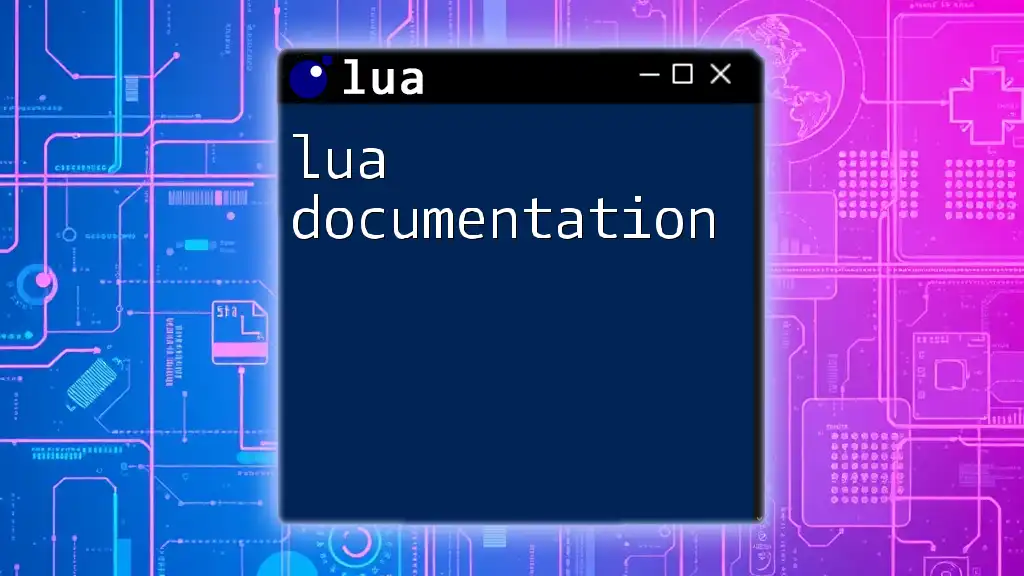
Call to Action
I encourage you to set up your own Lua sandbox today! Explore its capabilities and enjoy the creative process of coding and learning in this safe environment. The world of Lua scripting awaits!

